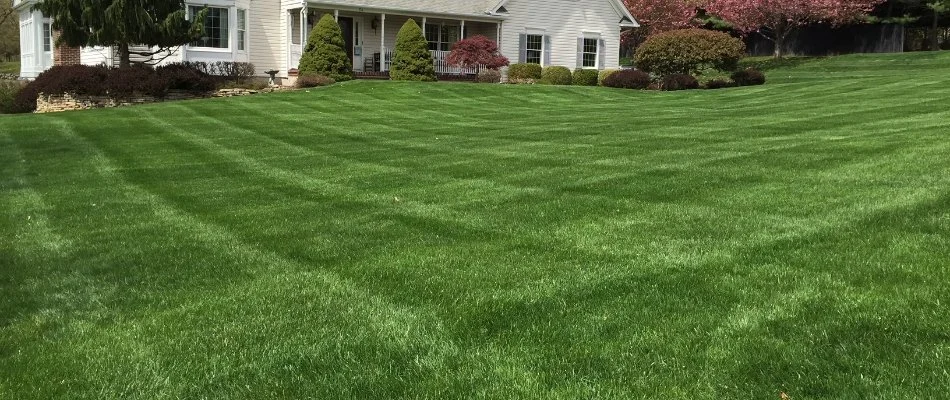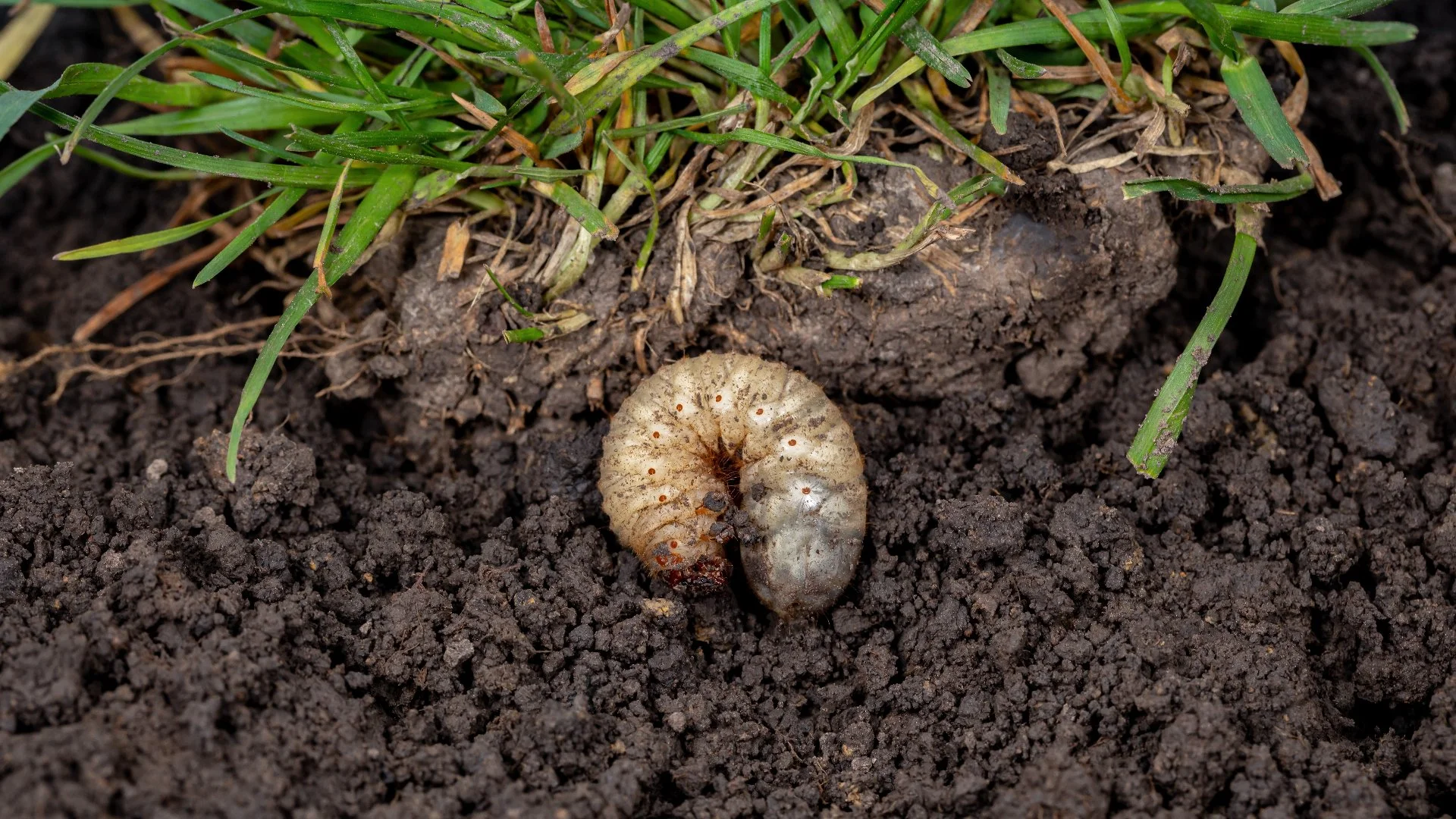Grubs are a common turf pest here in New Jersey, and they can cause serious damage to your lawn if they infest it by feeding on the roots. To prevent these pests from causing problems in the first place, you should schedule a preventative grub control treatment. This type of treatment will sink down into the soil and eliminate newly hatched grubs as they make their way up to feed on the roots of your grass. It should be applied between June and August to get ahead of when these pests become most active. If you skip preventative grub control, grubs could infest your lawn, and you would need to schedule a curative treatment to eliminate them. What's more, you might also need to schedule lawn care services to help your lawn recover from the damage that they caused. With preventative grub control, you can avoid a grub infestation altogether and the costly process of restoring your turf's health.
How do preventative grub control treatments work?
Preventative grub control treatments are designed to stop grubs in their tracks before they have a chance to cause damage to your lawn. This type of treatment is applied across your entire turf to sink down into the soil where these pests live, creating a protective barrier. Then, when grubs start to hatch and make their way up to feed on the roots of your grass, they'll come into contact with the treatment, which will eliminate them. By getting ahead of these pests before they start feeding on your turf's roots, you can prevent them from causing issues and extensive harm in the first place.
When should you apply a preventative grub control treatment?

The best time to apply a preventative grub control treatment is between June and August. That's because grubs are most active by late summer, so administering it during this window will ensure it establishes in the soil before they start hatching, giving it the best chance of being effective. If you apply this treatment too early, it could wear off before the grubs become active. On the other hand, if you apply it too late, grubs could be too far along in their life cycle and already be actively feeding on the roots of your grass.
What happens if you skip a preventative grub control treatment?
If you skip a preventative grub control treatment, there is a good chance that grubs could infest your lawn. If that happens, you will need to schedule a curative treatment to eliminate them. However, while a curative treatment will eliminate the grubs, it won't reverse any damage that they have already caused. So, you will also likely need to schedule lawn care services to help your lawn recover from the damage that these pests caused. As a result, you'll spend more money and time trying to get your turf back to its healthy, vibrant state than if you were to invest in preventative grub control!
Give us a call today to schedule our grub control service!
At Simply The Best Lawns, we offer a grub control service to safeguard your turf from these root-feeding pests! Preventative treatments are available between June and August to prevent an infestation, ensuring your lawn doesn't sustain damage in the first place. However, if grubs are already causing problems, you can schedule our curative applications to eliminate them. Either way, you can trust that we have the skills and expertise to combat grubs.
We offer our grub control service to residential and commercial property owners, along with HOAs, in Hunterdon, Morris, Passaic, Essex, Bergen, Somerset, Sussex, Warren, and surrounding counties in New Jersey. Some cities we serve include Wayne, Bridgewater, and Flemington, among others nearby. Give us a call at (973) 232-1776 to schedule this service today!



